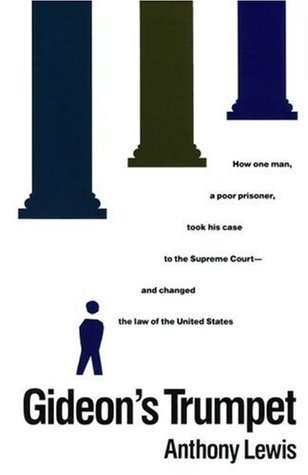What do you think?
Rate this book


277 pages, Paperback
First published January 1, 1964
The Court had chosen someone of more than ordinary experience and ability to represent Gideon, and the honor carried with it a special responsibility. If that most basic right, to be represented by counsel, was now to be extended, to all those charged with serious crimes in any court, the justices would want all possible intellectual support for taking the step. Fortas saw his job as reaching each of the nine.